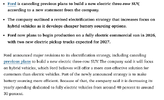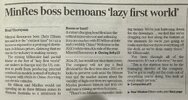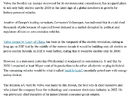- Joined
- 28 May 2020
- Posts
- 6,976
- Reactions
- 13,497


Ausgrid says it’s up to charging challenge but Ampol’s rollout of EV stations going slower than expected
Australia’s largest power distributor Ausgrid says it has the capacity to meet growing electric vehicle charging demand despite reports grid constraints were slowing progress.
Oil giant Ampol this week reported the rollout of its EV fast-charging network around the country was slower than expected, with difficulties in connecting to the grid.
Announcing Ampol’s financial results on Monday, chief executive Matt Halliday said the company had a pipeline of about 100 EV charging bays either awaiting grid connection or under construction in Australia and New Zealand.
“This provides some window into the challenges of delivering the enabling infrastructure to support the transition,” he said.
Ausgrid head of electric vehicle charging Nick Black said the power company supported the need for more EV charging of all types and “will continue to work with customers to speed up the process”.
“Some of these high-capacity fast chargers require the capacity that is available in our 11,000 volt network,” he said.
“This type of connection requires a customer to install a transformer that drops it to the voltage required for their service.
“The work is equivalent to installing a 14-apartment block on to the network.”
Mr Black said the process included a customer design, and the procurement of the transformer, which could have long lead times.
“It a process that has a high level of engineering design and back and forth between Ausgrid and the customer’s design team,” he said.
Mr Black said Ausgrid had the capacity on its network and was “ready to meet today’s demand while we evolve for the future”.
One of the country’s biggest investors in EV chargers says big oil companies will struggle to roll out their own networks at suburban service stations, but convenience rather than grid constraints were the likely reason.
EV driver Michelle Ryan charges her vehicle at an Evie Networks charging station in Brisbane. Picture: David Clark
Richlister Trevor St Baker, whose Evie Networks is now the biggest EV charging network in the country, said his company was focused on shopping centres targeting taxi, uber, commercial van and other professional drivers who required regular top-ups.
Mr St Baker said shopping centres were better locations for chargers because professional drivers could use the recharging time to have a meal or pick up some shopping.
“We never believed the model of installing chargers at service stations was going to work and expect that these sites will eventually be sold off for redevelopment,” he said.
Mr St Baker said Ampol was not a major player in the EV charging market, with only 92 recharging bays compared to Evie’s 700. He said grid constraints were not slowing the expansion of the company’s network given that most customers wanted to charge during the day when plentiful solar power was available.
“The grid does not drive cars,” he said. “The grid is there to charge batteries and during the day is when the sun is out and there is the most supply. In some cases supplying the necessary power cannot be done overnight and in some locations could never be done. If that is the case in those places we can use batteries to supplement the power supply.”
Chargefox chief executive John Sullivan said that while there may be some delays in rolling out EV charging infrastructure, the rapid expansion of other networks did not indicate a major problem with grid capacity.
Mr Sullivan, whose company supplies software to EV charging networks, said the sector was its early stages of development with only 200,000 electric vehicles in the country compared to 22 million petrol-driven cars. There are about 3000 public charging stations, with Chargefox arguing the infrastructure supporting it is not only keeping pace but improving in reliability and accessibility.
Mineral Resources boss Chris Ellison said it is the “s---tiest time” to run a business exposed to a prolonged downturn in lithium prices, claiming that no one in the industry was making money.
The mining billionaire laid partial blame at the feet of “lazy, first world” car makers in Europe and the US, content to profit from producing internal combustion models instead of trying to compete with rivals in China churning out electric vehicles.
Mr Ellison said MinRes would cut spending on its three lithium mines in Western Australia to a minimum in 2024-25, but would not shut them down.
The company will not pay a final dividend for the first time since 2013 as it looks to preserve cash amid the lithium rout and market unease about the viability of high-cost iron ore operations. MinRes produces lithium and iron ore and runs a mining services business.
“There’s no lithium companies making money. We’re just battening down for the downturn … we feel like we’re dragging our feet along the bottom at the moment. So we’re just going to make sure that we throw everything off the deck, as we’ve done many times,” Mr Ellison said.
“I’ve been through all of the downturns. It’s not a fun time,” he said.
“This is the s---tiest time to be the managing director of the company. You’ve got to really cut the costs out of everything you’re doing. You look at every single person.”
MinRes is shutting down high-cost iron ore operations in the Yilgarn region of WA and has said it will try to find other jobs for about 1000 workers affected by the closure.
More jobs will go as MinRes completes construction of its $3 billion Onslow Iron project, which started shipping iron ore in May, and the company is in the process of sacking about 140 workers at its head office in Perth.
MinRes will defer expansion projects and focus on cost reduction and cash preservation in 2024-25 after ending June 30 with net debt of almost $4.4 billion, up from $1.9 billion last year.
Barrenjoey analyst Glyn Lawcock said the next six months would be tough for MinRes, with the market trying to work out if it had enough liquidity to get through to a point where Onslow Iron started to make money.
“The business is still burning cash and debt levels are still increasing, so he (Mr Ellison) needs to bunker down, and then, hopefully, into the New Year the business can turn free cash flow positive,” Mr Lawcock said.
The company remains wedded to lifting production at Onslow Iron to 35 million tonnes a year in 2024-25. It is confident that the operation will be cash flow positive and boost its mining services and infrastructure division.
The MinRes share price fell 8 per cent to a near three-year low of $40.61 on Thursday. The stock has fallen 42 per cent this year.
MinRes has about $2.8 billion in liquidity factoring in funds from the sale of a stake in the Onslow Iron haul road, $900 million in cash and an undrawn loan of $800 million.
Mr Ellison said the company was concerned about the health and wellbeing of its people and now employed nine psychologists.
‘Hold them captive’
He said he did not like employees leaving the company’s head office for coffee let alone working from home, which is banned at MinRes.
“I want to hold them captive all day long. I don’t want them to walk down the road for a cup of coffee. We kind of figured out a few years ago how much that costs, wandering out around lunchtime,” he said.
MinRes provides freshly cooked meals at its head office and is moving to introduce budget-priced day care.
The company reported its full-year result after the market closed on Wednesday. Underlying net profit was down 79 per cent to $158 million. It flagged capital expenditure of $1.9 billion in 2024-25, above consensus expectations of $1.6 billion, despite the balance sheet pressures and prevailing market conditions.
Almost $800 million is set aside for more work on Onslow Iron. That figure includes work on completing the haul road linking previously stranded iron ore reserves in the west Pilbara to port.
Mr Ellison said the $1.3 billion sale of a 49 per cent stake in the haul road to Morgan Stanley Infrastructure Partners was “bulletproof” and not subject to any conditions around volumes, performance or the iron ore price.
MinRes shelved plans to boost production at Onslow Iron from 35 million tonnes to 50 million tonnes at an estimated cost of $1.3 billion.
However, Mr Ellison remained optimistic the iron ore price would remain around or slightly below $US100 a tonne despite BHP and others warning of slowing demand in China. He conceded he never expected lithium to slide below $US1000 a tonne.

Mining billionaire Chris Ellison bemoans ‘s---tiest time’ to be boss
No one is making money in lithium and every job is under scrutiny, warned the Mineral Resources boss who lamented “it’s not a fun time” to be in business.www.afr.com

You could replace the words "car makers" with just about anything manufactured.While having breakfast in my yms cafe, I came across an article in the AFR that pretty much tells the story about our current world - "lazy".
The mining billionaire laid partial blame at the feet of “lazy, first world” car makers in Europe and the US, content to profit from producing internal combustion models instead of trying to compete with rivals in China churning out electric vehicles.
seems to be going great gunsNot an electric car but an electric ship.
To be built in Australia too.


‘A very serious situation’: Volkswagen could close plants in Germany for the first time in history
Volkswagen is weighing whether to close factories in Germany for the first time in its 87-year history as it moves to deepen cost cuts amid rising competition from China’s electric vehicle makers.
In a statement Monday, the German automaker, one of the world’s biggest car companies, said that it could not rule out plant closures its home country. Other measures to “future-proof” the company include trying to terminate an employment protection agreement with labor unions, which has been in place since 1994.
“The European automotive industry is in a very demanding and serious situation,” said Volkswagen Group CEO Oliver Blume. “The economic environment became even tougher, and new competitors are entering the European market. Germany in particular as a manufacturing location is falling further behind in terms of competitiveness.
Volkswagen, which embarked on a €10 billion ($11.1 billion) cost-cutting effort late last year, is losing market share in China, its single biggest market. In the first half of the year, deliveries to customers in that country slipped 7% on the same period in 2023. Group operating profit tumbled 11.4% to €10.1 billion ($11.2 billion).
The lackluster performance in China comes as the company loses out to local EV brands, notably BYD, which also pose an increasing threat to its business in Europe.
“Our main area of action is cost cutting,” Blume told analysts on an earnings call last month, citing planned reductions to factory, supply chain and labor expenses. “We have done all the organizational steps needed. And now it is about costs, costs and costs,” he added.
Volkswagen’s cost-cutting plans will face heavy resistance from labor representatives, which hold almost half the seats on the company’s supervisory board, the body that appoints executive managers.
IG Metall, one of Germany’s most powerful unions, on Monday blamed mismanagement for the firm’s shortcomings and vowed to fight to protect jobs.
“Today, the board presented an irresponsible plan that shakes the very foundations of Volkswagen, massively threatening jobs and locations,” IG Metall lead negotiator Thorsten Groeger said in a statement.
“This approach is not only short-sighted but also highly dangerous — it risks destroying the heart of Volkswagen… We will not tolerate plans that the company makes at the expense of the workforce.”
Volkswagen employs almost 683,000 workers worldwide, including some 295,000 in Germany, according to its most recent earnings report.
Thomas Schaefer, the CEO of Volkswagen passenger cars, said the company remains committed to Germany “as a business location.” He added that VW would initiate talks with employee representatives urgently to explore possibilities for “sustainably restructuring the brand.”
“The situation is extremely tense and cannot be resolved through simple cost-cutting measures,” Volkswagen said.
Pretty hard to compete with producers who can actually run at a loss, if required.Volkswagen are feeling the pain of not having a competitive EV to sell at a profitable price in China, the EV capital of the world.
Volkswagen, which embarked on a €10 billion ($11.1 billion) cost-cutting effort late last year, is losing market share in China, its single biggest market.The lackluster performance in China comes as the company loses out to local EV brands, notably BYD, which also pose an increasing threat to its business in Europe.
Pretty hard to compete with producers who can actually run at a loss, if required.
The writing is on the wall for a lot of Western manufacturers.
the Australian car-maker industry did it also , ( when me had a car manufacturing industry )BYD are one of the few Chineses manufacturers making a profit
Why BYD's EV exports sell for twice the China price
U.S. and European politicians have raised alarms that their domestic auto industries could be destroyed by a wave of cheap Chinese electric vehicles. But so far, China's top EV maker, BYD, has dramatically hiked export prices compared to what it charges at home rather than undercut foreign rivals.The goal: to rake in hefty profit margins the automaker can’t get in China amid fierce competition.
Nothing new here, the English car industry went through the same thing in the 50's & 60's with Japan. Set up factories, shared the technology but forgot to stay ahead.
Plus all the profits went to the U.S and the taxpayer was giving them a buge subsidy, which then became that profit.the Australian car-maker industry did it also , ( when me had a car manufacturing industry )
but maybe the back-breaking straw was the idea of more manufacturers was better , too many brands , too many models , and we proved to be too expensive to export many vehicles ( to give the industry scale )
Maybe looking at own navel?While having breakfast in my gym's cafe, I came across an article in the AFR that pretty much tells the story about our current world - "lazy".
The mining billionaire laid partial blame at the feet of “lazy, first world” car makers in Europe and the US, content to profit from producing internal combustion models instead of trying to compete with rivals in China churning out electric vehicles.
View attachment 183407
yepPlus all the profits went to the U.S and the taxpayer was giving them a buge subsidy, which then became that profit.
Another taxpayer subsidies in waitingseems to be going great guns
“There’s at least 1,000 medium-sized ships needed. There’s another 1,000 Sydney Harbour-sized ships needed, etc. So the market is unbelievably large.”
- Bob Clifford INCAT

INCAT to build new shipyard in Derwent Valley to meet demand for electric vessels
The new site will employ approximately 800 people as part of Bob Clifford’s vision…pulsetasmania.com.au
i prefer 'energy efficient' to 'lazy 'Maybe looking at own navel?
submarines ?Another taxpayer subsidies in waiting
Electric boats....
When you consider how dangerous fire is on boats vs land vehicle...submarines ?
at least the fires would be contained sometimes
i wonder which types of batteries they wonder use ( in boats or submarines )
Hello and welcome to Aussie Stock Forums!
To gain full access you must register. Registration is free and takes only a few seconds to complete.
Already a member? Log in here.